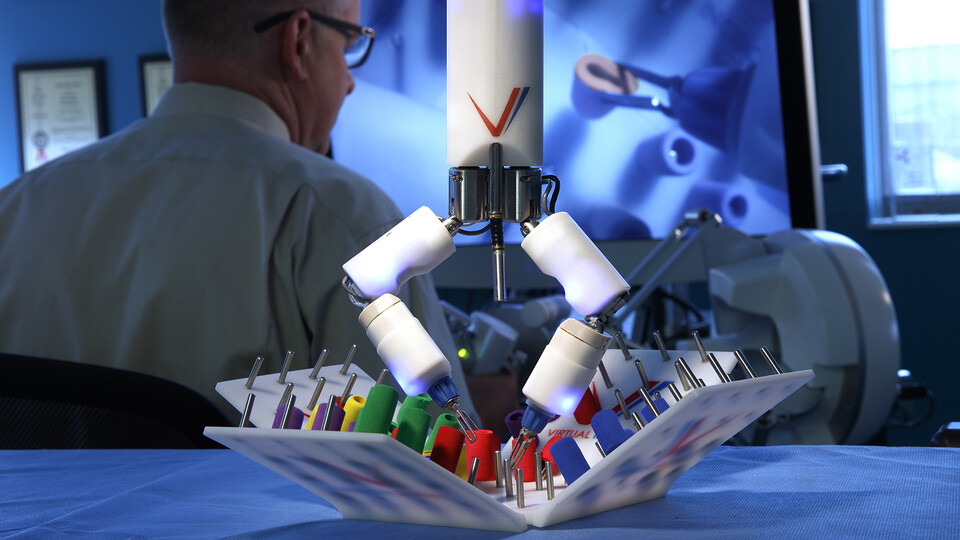
by Leslie Reed | University Communication and Marketing
A miniaturized robot invented by Nebraska’s Shane Farritor is on schedule to blast off into space to showcase its skills.
NASA recently awarded the University of Nebraska-Lincoln $100,000 through the Established Program to Stimulate Competitive Research (EPSCoR) to ready the surgical robot for a 2024 test mission aboard the International Space Station.
“NASA has been a long-term supporter of this research and, as a culmination of that effort, our robot will have a chance to fly on the International Space Station,” said Farritor, professor of engineering.
Farritor is co-founder of Virtual Incision, a startup company based on Nebraska Innovation Campus. For nearly 20 years, he and his colleagues have been developing the tiny surgical robot known as MIRA, short for “miniaturized in vivo robotic assistant.” The company has attracted more than $100 million in venture capital investment since its founding in 2006.
During the next year, Farritor and engineering graduate student Rachael Wagner will write software, configure MIRA to fit inside a space station experiment locker and exhaustively test the device to make sure it’s robust enough to survive launch and its systems will perform as anticipated in space. Then, they will wait a year or so for the robot to get its turn aboard the station.
Wagner, who is from Lincoln, began working with Farritor as an undergraduate student and took a position with Virtual Incision after completing her bachelor’s degree in mechanical engineering in 2018. A second graduate student may join the team later in 2022.
Read more:
https://news.unl.edu/newsrooms/today/article/husker-developed-surgical-robot-readies-for-space-station-test/